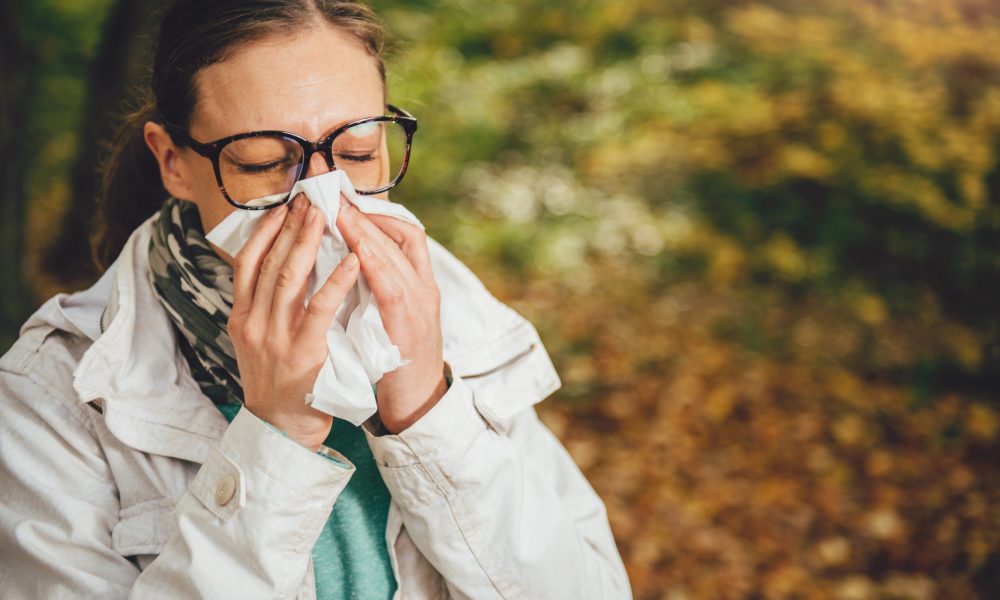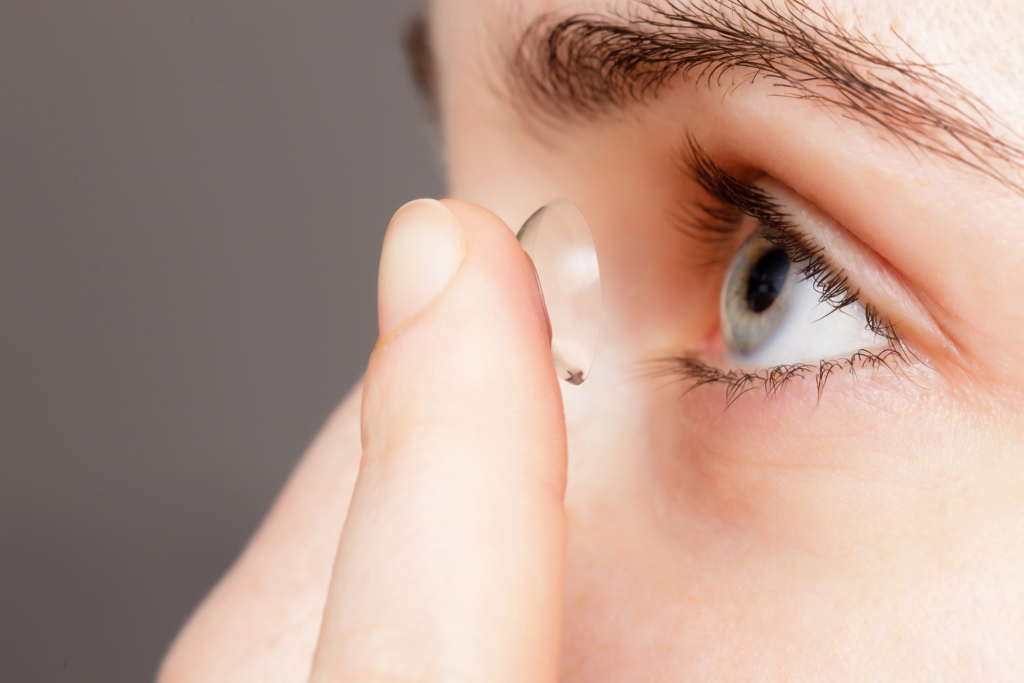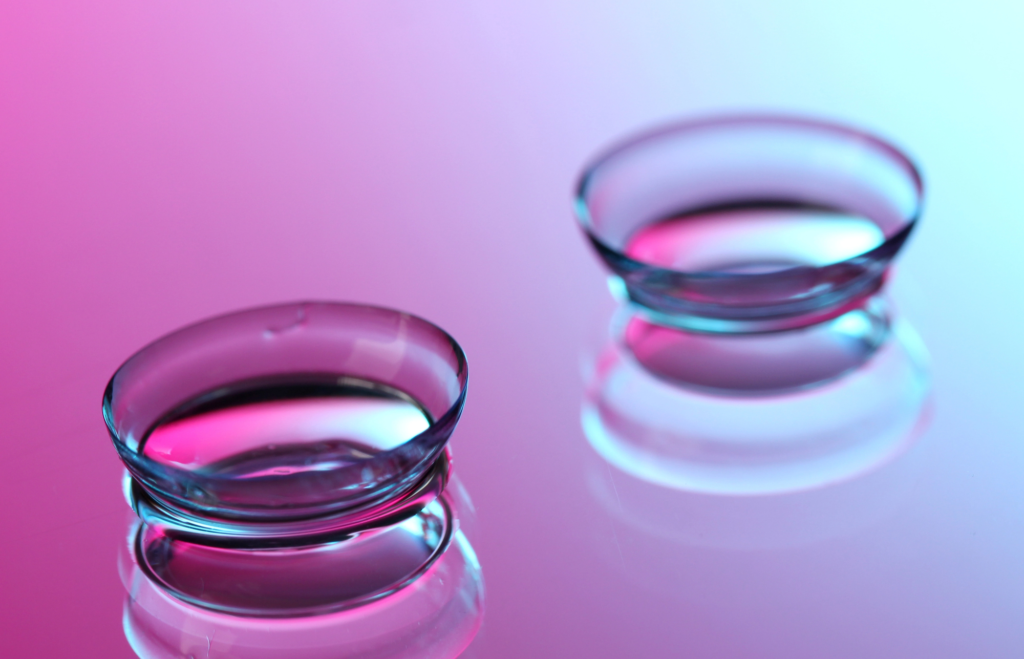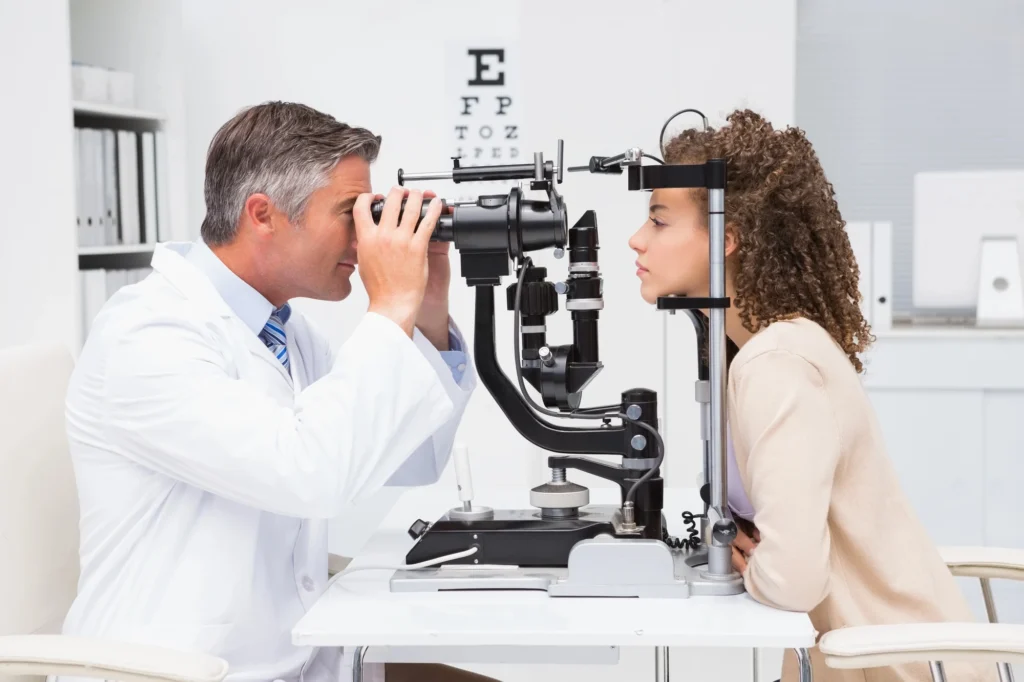Our eyes are exposed to a variety of environmental changes throughout the year, from dry, cold winds in winter to bright, sunny days in summer. Each season brings its own set of challenges for maintaining healthy vision. The good news is that with a few adjustments to your routine, you can protect your eyes no matter the weather.
Whether you’re dealing with dry eyes in winter or battling allergies in spring, taking proper care of your eyes is crucial. This guide will show you how to keep your vision sharp and your eyes comfortable year-round with expert-backed tips for every season. And remember, regular visits to your eye doctor are just as important as these seasonal habits. By staying proactive, you can prevent common eye issues before they become a problem.
Winter Eye Care
Winter can be tough on your eyes. The combination of cold, dry air outdoors and heated indoor environments can quickly lead to dry eyes, irritation, and discomfort. Not to mention, the harsh glare from snow can make it difficult to see clearly, especially without proper protection.
Here are some quick tips to keep your eyes healthy during the winter months:
Use Humidifier Indoors
Heating systems dry out the air, which can lead to dry eyes. A humidifier helps maintain moisture levels in your home, keeping your eyes more comfortable.
Stay Hydrated
Cold weather often makes us forget to drink water, but staying hydrated is crucial for your overall health and for keeping your eyes from drying out.
Wear Sunglasses
Snow reflects sunlight, increasing your exposure to UV rays. Wearing sunglasses with UV protection shields your eyes from harmful rays and reduces glare.
Apply Eye Drops
If you feel your eyes becoming dry or irritated, lubricating eye drops can provide relief. Look for preservative-free options for long-term use.
Winter is a season when many people experience discomfort due to eye dryness. If you notice persistent symptoms, it might be time to consult your eye doctor. A professional can recommend the right treatments to keep your eyes comfortable all season long.
Spring Eye Care
Springtime brings blooming flowers, fresh air… and a whole lot of pollen! While it’s a beautiful season, it’s also prime time for allergy-related eye issues like redness, itching, and watery eyes. If you’re someone who suffers from seasonal allergies, protecting your eyes from allergens is essential to staying comfortable.
Here are some easy ways to care for your eyes during the spring:
Wear Sunglasses Outdoors
Not only do sunglasses protect against UV rays, but they also shield your eyes from wind and pollen, reducing the chances of allergens getting into your eyes.
Use Allergy Eye Drops
Over-the-counter allergy eye drops can help reduce redness and itching. For severe symptoms, your eye doctor might recommend prescription options.
Keep Windows Closed
While it’s tempting to let in the fresh spring air, doing so can bring in pollen and allergens. Use air conditioning to filter the air instead.
Wash Your Hands and Face Frequently
Pollen can easily stick to your skin and hands, so washing frequently will reduce the risk of transferring allergens to your eyes.
Allergy season doesn’t have to mean suffering from constant eye irritation. If your symptoms persist, consult an eye doctor for tailored advice and treatments.
Summer Eye Care
Summer is the season for sunshine, beach trips, and outdoor fun, but it also comes with its own set of challenges for your eyes. Between the harsh sun, chlorine from pools, and dry, hot air, your eyes need extra care to stay healthy and comfortable.
Here’s how to protect your eyes during the summer:
Wear UV-Blocking Sunglasses
Sunglasses aren’t just a fashion statement—they’re essential for protecting your eyes from harmful UV rays. Choose sunglasses that block 100% of both UVA and UVB rays to prevent damage from prolonged sun exposure.
Use Protective Eyewear in Pools
Chlorine can be extremely irritating to your eyes. Wearing swim goggles helps protect your eyes from the harsh chemicals in pools and reduces the risk of eye infections.
Stay Hydrated
Just like in winter, dehydration in summer can lead to dry eyes. Drinking plenty of water helps keep your body hydrated and your eyes properly lubricated.
Limit Sun Exposure
If possible, avoid being in direct sunlight during peak hours (10 AM to 4 PM), or wear a wide-brimmed hat to provide additional shade for your eyes.
During the summer, your eyes can be more vulnerable to UV damage, so it’s essential to take extra precautions. If you experience eye discomfort, dryness, or vision changes, it’s best to consult an eye doctor for a check-up.
Fall Eye Care
As the temperatures drop and the winds pick up, fall introduces new environmental factors that can impact your eye health. Windy days can blow debris and dust into your eyes, causing irritation, and the shift to cooler weather can lead to dryness similar to what you experience in winter.
Here are some essential eye care tips for the fall season:
Use Artificial Tears
Windy, dry conditions can make your eyes feel gritty and irritated. Keep artificial tears on hand to keep your eyes moist and comfortable.
Wear Protective Eyewear
Whether you’re raking leaves or taking a walk on a blustery day, wearing protective eyewear can help shield your eyes from debris and allergens carried by the wind.
Clean Your Home Regularly
Fall allergens like mold and dust can accumulate indoors, leading to irritation and eye allergies. Regular cleaning can help minimize indoor allergens and keep your eyes feeling fresh.
Moisturize Your Eyes
As fall transitions into winter, the air becomes drier, both outside and indoors. Using a humidifier at home can help maintain moisture in the air and prevent dry eyes.
Fall can be particularly harsh on those who are prone to allergies or dryness, so taking proactive steps can go a long way in keeping your eyes comfortable. If fall brings more eye issues than usual, consulting an eye doctor is a good idea.
FAQs
How does winter affect your eyes?
Winter often brings dry, cold air, which can lead to dry eyes and irritation. The combination of outdoor cold and indoor heating can decrease moisture in your eyes, causing discomfort and sometimes blurry vision.
How to take care of your eyes in the winter?
To protect your eyes during winter, use a humidifier indoors to maintain moisture in the air, apply lubricating eye drops as needed, and wear sunglasses to protect your eyes from the sun’s glare on snow.
Is dry eye worse in the winter?
Yes, many people experience worse dry eye symptoms in winter due to the dry, cold air outside and the use of heating systems indoors, both of which can reduce the moisture in your eyes.
Why do my eyes water in the spring?
Spring is known for allergens like pollen, which can trigger eye allergies and cause symptoms like itchy, watery eyes. This reaction is common during allergy season, especially when pollen counts are high.
How can I protect my eyes in summer?
Protect your eyes in summer by wearing UV-blocking sunglasses, staying hydrated, and wearing a wide-brimmed hat to reduce direct sunlight exposure. Swimming goggles are also helpful when swimming in chlorinated pools to prevent irritation.
What is basic eye care?
Basic eye care includes regular eye exams, wearing UV-protective sunglasses, using eye drops when needed, maintaining proper hydration, and following safe screen habits to avoid eye strain. Regular consultations with your eye doctor can help you tailor your eye care routine to your needs.
Can allergies affect my eyes in spring and fall?
Yes, seasonal allergies in both spring and fall can lead to itchy, watery, or red eyes due to pollen, dust, or mold exposure. Allergy eye drops and protective eyewear can help reduce these symptoms.
What is the best way to prevent dry eyes in winter?
The best way to prevent dry eyes in winter is to use a humidifier to add moisture to the air, stay hydrated, and apply lubricating eye drops. You can also protect your eyes from cold winds by wearing wraparound sunglasses.
How to protect the eye from the sun?
To protect your eyes from the sun, always wear sunglasses that block 100% of UVA and UVB rays, and consider wearing a hat for extra protection. UV rays can cause long-term damage to your eyes, so it’s essential to take precautions year-round.
No matter the season, your eyes need proper care to stay healthy and comfortable. Whether you’re dealing with dry eyes in winter, allergies in spring, or intense UV rays in summer, making small adjustments to your routine can help protect your vision year-round. Remember, these seasonal eye care tips are a great start, but regular check-ups with an eye doctor ensure that you’re keeping your eyes in the best shape possible.
At Eye Pros, we’re here to help you navigate the changing seasons with personalized eye care. If you’re experiencing persistent symptoms or just want a comprehensive eye exam, don’t wait. Book a consultation with one of our expert eye doctors today and ensure your vision is protected all year long. Visit Eye Pros and take the next step toward healthier eyes!





